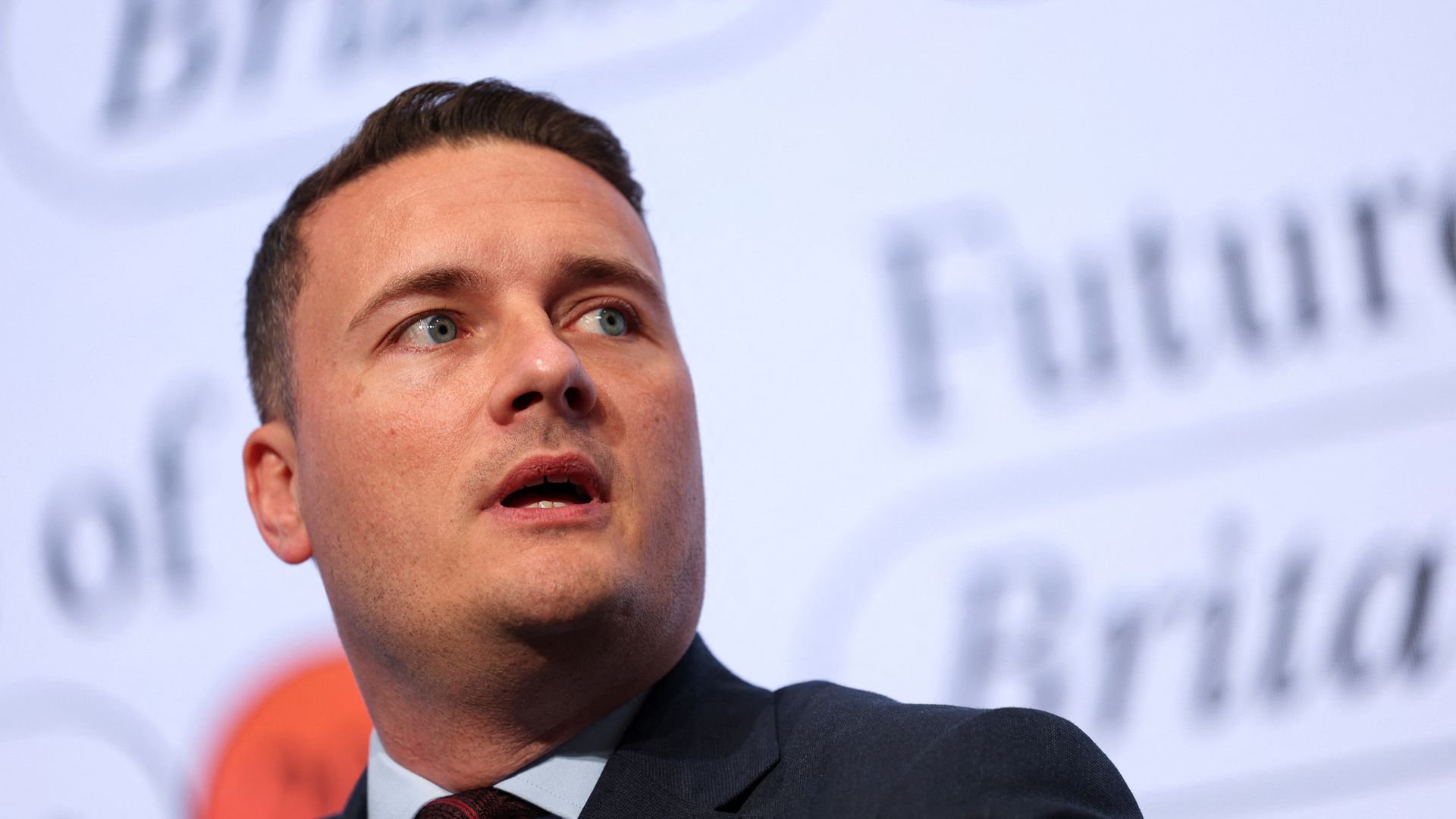Junior doctors have refused to rule out further strike action despite having a “positive” meeting with the new health secretary.
Members of the British Medical Association (BMA) met Wes Streeting on Tuesday morning where they discussed the industrial action junior doctors have been on for more than a year over pay and working conditions.
Speaking after the meeting with Mr Streeting, Dr Laurence Robertson and Dr Vivek Trivedi, who chair the BMA union’s junior doctors’ committee, said the meeting was “positive”.
“We were pleased to be able to meet the secretary of state and his team so quickly after the general election – it signifies the urgency that they’re placing on resolving this dispute,” Dr Trivedi said.
However, the pair did not rule out further strike action.
Politics latest: Starmer and Sunak take on new roles as parliament returns
“We’re confident that the meeting today was positive, and we’ve already agreed to meet again next week with the secretary of state to further discuss how we can progress,” they said.
What will happen to tax and interest rates under Labour – and how will benefits change?
Prisoners likely to be released earlier as part of Labour plans to tackle prison overcrowding
Starmer says Labour will have ‘different way of doing politics’ as he tours UK nations
Mr Streeting has identified the junior doctors’ strike as one of the key issues he needs to fix on assuming his new cabinet role.
Bringing the current NHS waiting list down – which currently stands at 6.3 million patients – was one of Sir Keir Starmer’s six steps for government outlined before the election was called.
Read more:
Tories reshuffle top team
Suella Braverman launches attack on Rishi Sunak
While in government, the Conservatives managed to resolve the pay dispute involving the nurses and consultants, but junior doctors and previous Tory ministers remained at loggerheads over a pay deal.
Junior doctors accepted a 9% pay rise last summer but negotiations broke down over an additional 3% increase. The BMS eventually wants to see junior doctors awarded with a 35% increase.
Pressure to resolve dispute
The meeting comes amid pressure to resolve the dispute given the BMA’s mandate for industrial action ends in September. The union is expected to hold another ballot in August.
On Tuesday morning, Mr Streeting said he would “give it a good go” when asked if he would reach a pay agreement with the junior doctors to end industrial action.
But appearing at an event at the Tony Blair Institute (TBI) ahead of his morning meeting, Mr Streeting warned the government could not afford the 35% pay rise the junior doctors were demanding.
He said the meeting was an “important reset moment in the relationship between junior doctors and their government”.
Keep up with all the latest news from the UK and around the world by following Sky News
“In opposition we were very clear that the headline 35% pay demand is not one we could afford,” he said.
“And that has not changed since the general election.
“The reason we were so blunt in opposition, wasn’t simply about delivering a tough message, but about showing them the respect I think they are due and a key ingredient of respect is honesty.”
👉 Tap here to follow Politics at Jack and Sam’s wherever you get your podcasts 👈
The health secretary also said he was “angry” about a “whole range of issues” affecting junior doctors, beyond pay.
“Beyond pay, there are a whole range of issues about how junior doctors are treated by their employer, which I am genuinely angry about in terms of their placements, their rotations,” he said.
“The most egregious case I saw reported was a junior doctor whose partner had cancer, they had two kids, and there was no flexibility shown in where that family was placed, despite the obvious challenges of treatment and the obvious challenges of care.
Be the first to get Breaking News
Install the Sky News app for free
“And when there was a public outcry, lo and behold, the situation was resolved. That is not an employer that is treating their staff well.”
Dr Laurenson said after the meeting that Mr Streeting was “very interested in learning what went wrong”.
“And I think that bodes well because that’s not a question that’s ever been asked of us before, which has been a problem for being able to get around any kind of dispute.
“So he was listening, and I just hope that they learnt.”






















